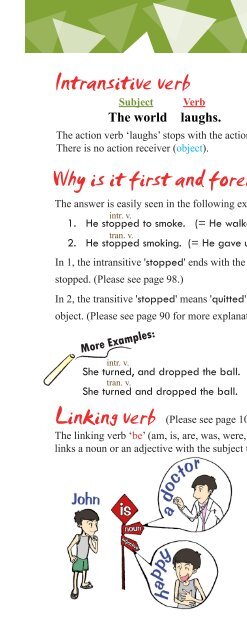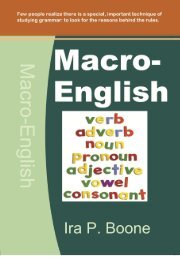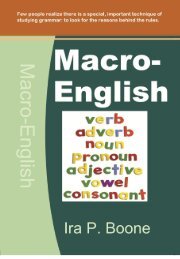English for the Eager Learners
Create successful ePaper yourself
Turn your PDF publications into a flip-book with our unique Google optimized e-Paper software.
Intransitive verb<br />
Subject Verb<br />
The world laughs.<br />
The action verb ‘laughs’ stops with <strong>the</strong> action doer ‘world’ (subject).<br />
There is no action receiver (object).<br />
More Examples:<br />
Linking verb<br />
(Please see page 100.)<br />
Lesson 2<br />
Why is it first and <strong>for</strong>emost to classify a verb?<br />
The answer is easily seen in <strong>the</strong> following examples:<br />
intr. v.<br />
1. He stopped to smoke. (= He walked no far<strong>the</strong>r and stood <strong>the</strong>re and smoked.)<br />
tran. v.<br />
2. He stopped smoking. (= He gave up smoking and smoked no more.)<br />
In 1, <strong>the</strong> intransitive 'stopped' ends with <strong>the</strong> subject 'he', and 'to smoke' tells us why he<br />
stopped. (Please see page 98.)<br />
In 2, <strong>the</strong> transitive 'stopped' means 'quitted' and takes <strong>the</strong> noun (gerund) 'smoking' as its<br />
object. (Please see page 90 <strong>for</strong> more explanations of gerunds.)<br />
intr. v.<br />
She turned, and dropped <strong>the</strong> ball. (= She went round and dropped <strong>the</strong> ball.)<br />
tran. v.<br />
She turned and dropped <strong>the</strong> ball. (= She turned <strong>the</strong> ball and dropped it.)<br />
The linking verb ‘be’ (am, is, are, was, were, been, being, be) is used most frequently. It<br />
links a noun or an adjective with <strong>the</strong> subject to make <strong>the</strong> meaning of a sentence complete.<br />
Subject Complement<br />
John is a doctor.<br />
(noun) (linking v.) (noun)<br />
Subject Complement<br />
John is happy.<br />
(noun) (linking v.) (adjective)<br />
19




